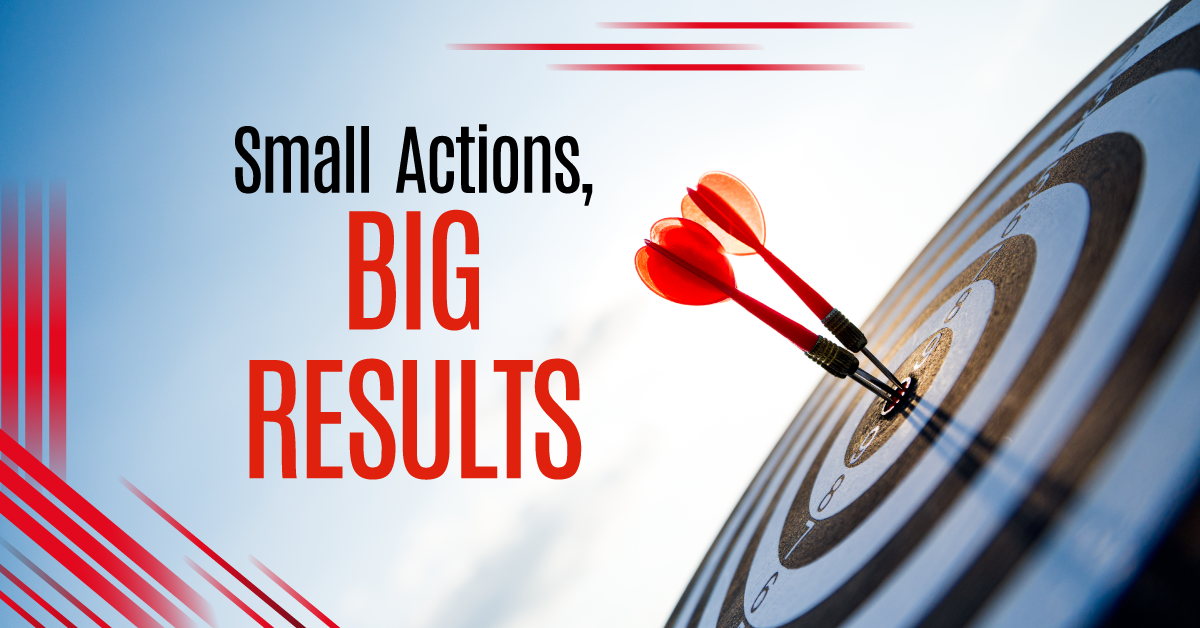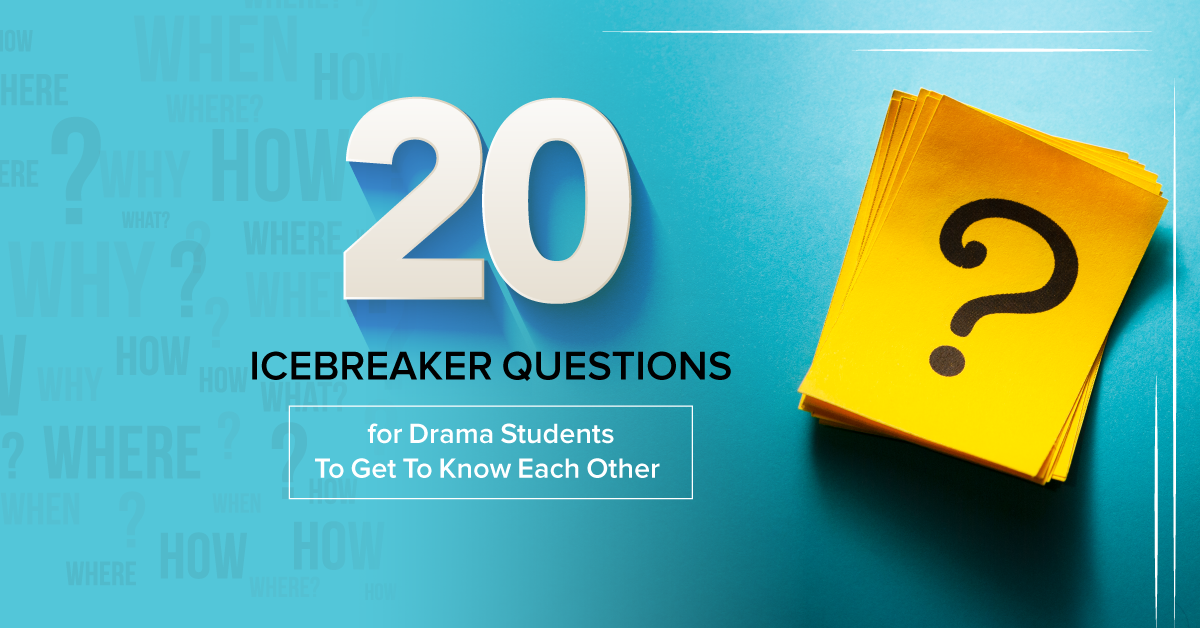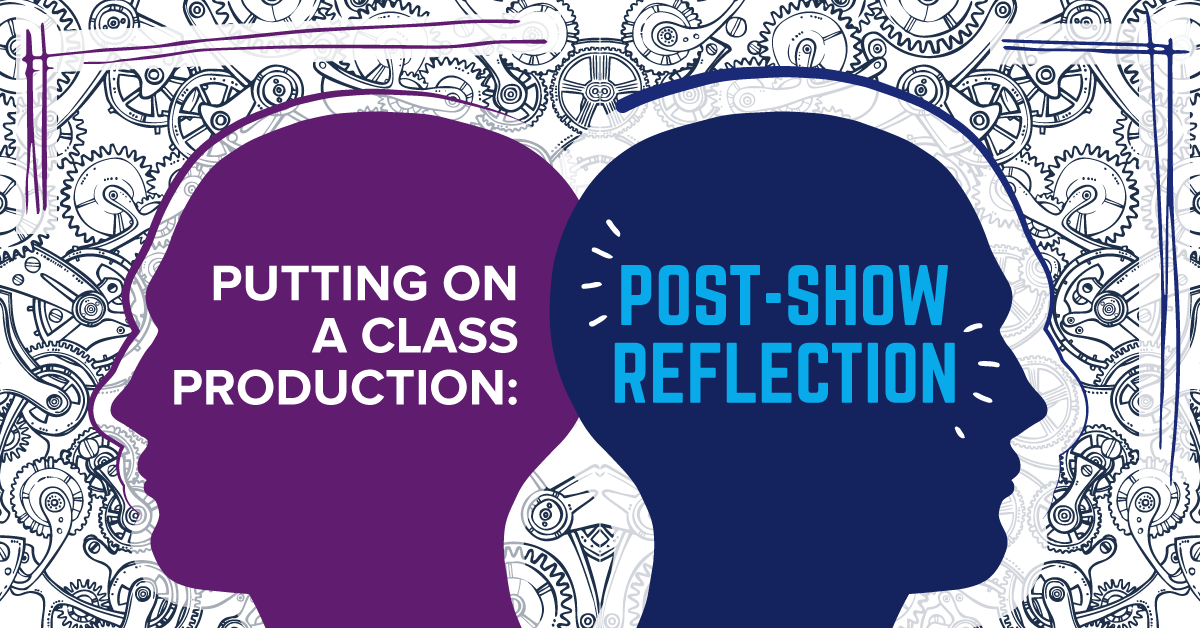NEW COMPETITION VERSION - Rebootilization: Stories are vanishing! SynCryn’s “foolproof” Rebootilization process promises to save the day—but chaos, glitches, and laughs ensue! Perfect for middle school, this new competition version is packed with humor and excitement!
Small Actions, Big Results
Students often come to drama class with big goals: Get the lead in the show! Become a performing star! And while some students might make great steps towards achieving those big goals, most don’t really know how to start, or want too much too fast and fizzle out. They might even think that the work is too hard.
So how can we help our students achieve their goals and grow as performers? Encourage them to start small!
Start with asking your students this question of the day: What is one small thing you can focus on this week to improve your performance in drama class? Have students brainstorm a list of tiny action steps related to their performance that they could improve on. The actions must be very small and specific. If it’s longer than a single sentence, they need to pare it back even more. Here are some suggestions for students to start with:
- Enunciating “ings” or “ts” while speaking and/or singing
- Increasing spoken volume by 2%
- Lowering shoulders (Release the tension! Relax your body!)
- Noticing, then adjusting eye contact (Where are you looking? Where are you supposed to be looking?)
- Releasing tension from the jaw (Try removing your tongue from the roof of your mouth.)
- Standing up straight
- Uncrossing your arms during blocking instructions or note sessions
- Taking your hands out of your pockets
- Pointing your toes during dance combinations
- Extending your fingers during dance combinations
- Volunteering to answer one more question per class
- Staying quiet between scene runs (It’s common for drama students to immediately chat with their neighbours when the teacher/director calls for the team to stop.)
Small actions add up. During a week that you’re focusing on scene work or performances, have students go back to the brainstorm list and choose one micro-action that they’d like to personally focus on. Their goal is to apply that action to their acting work that week, whether in rehearsal or performing in front of the class.
Have students take a fresh piece of paper out and write their micro-focus action at the top of the page, along with their name. Draw a table with four columns and six rows. In the left hand column, write each day of the week, leaving space between each heading. (You can also use the practice log found at the bottom of this article.) Each day for one week, at the end of class, have students complete the following exit slip:
- Rate out of ten how successful you were at remembering and applying your micro-action to today’s class/rehearsal/performance (10 being you remembered and applied your action to every aspect of your performance, 1 being you never remembered or applied your action to any part of your performance).
- Write down two pieces of feedback for yourself (one positive, one constructive) on your work on your action during today’s class/rehearsal/performance.
At the end of the week, have students look back on their in-class work on their small actions. Have them respond to the following reflection questions:
- Were you successful at applying and practicing your micro-action? Why or why not?
- What changes have you noticed since beginning work on your micro-action?
- How has working on your micro-action helped you to become a better performer?
If you wish, have students do a second check-in after a month on their micro-actions:
- Since the start of the month, what changes have you noticed since working on your micro-action? (Or did you forget about it?)
- How has this small action affected your performance in drama class?
- What will your next micro-action goal be going forward?



